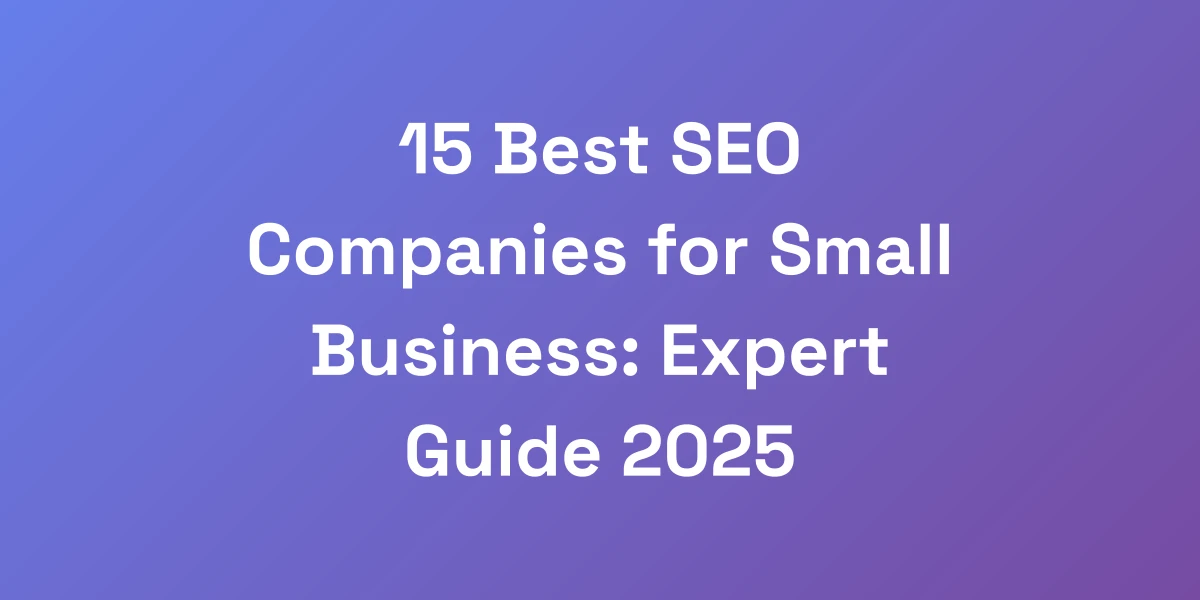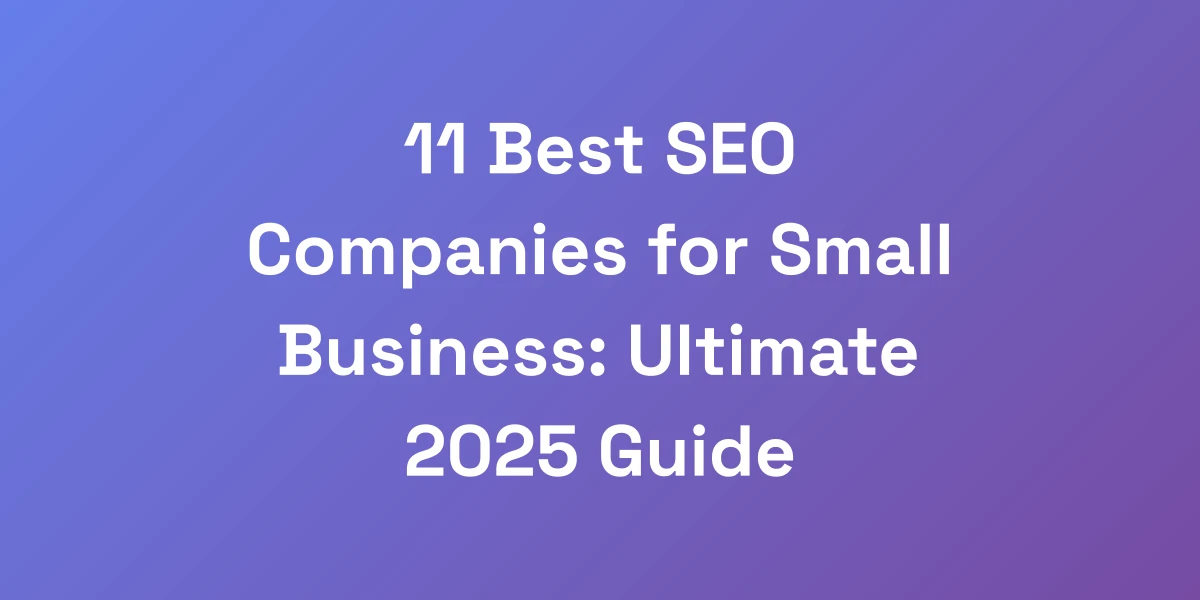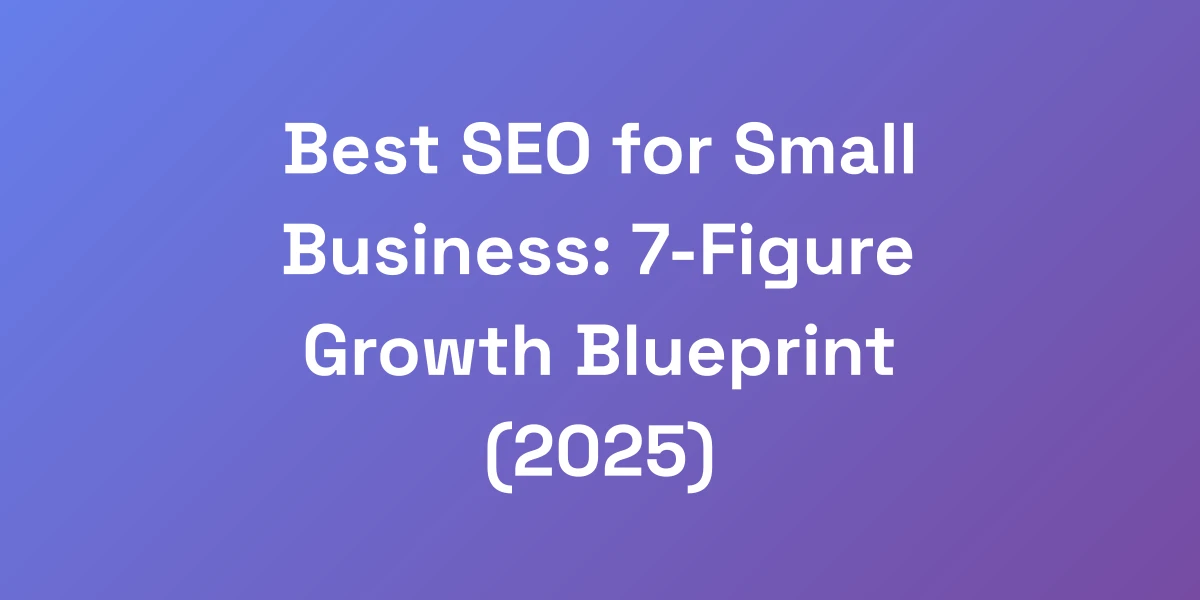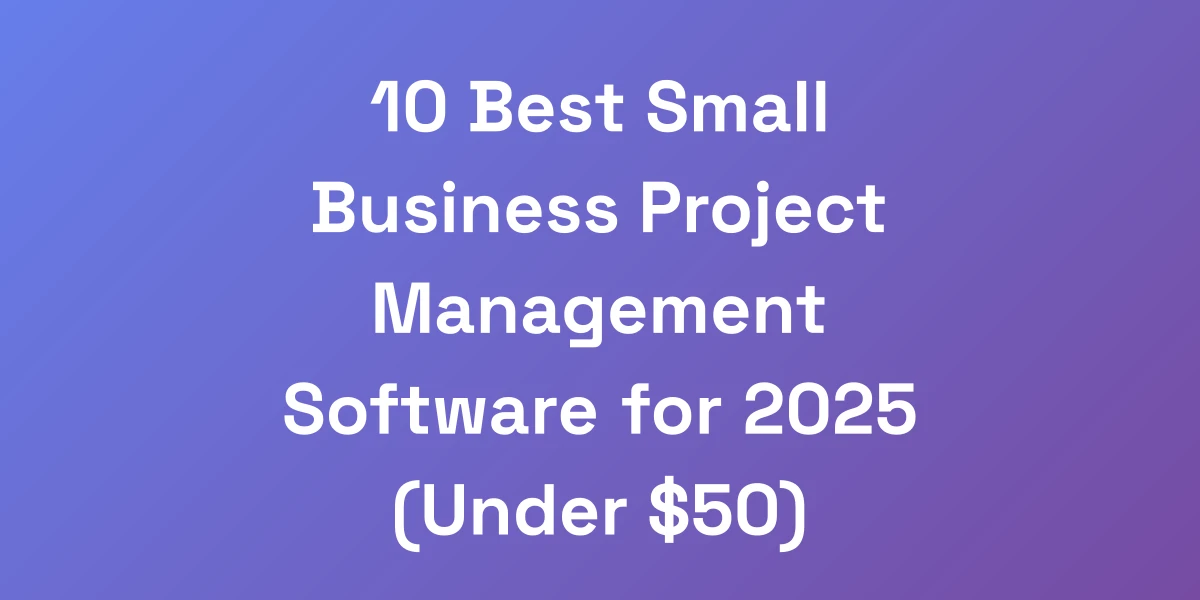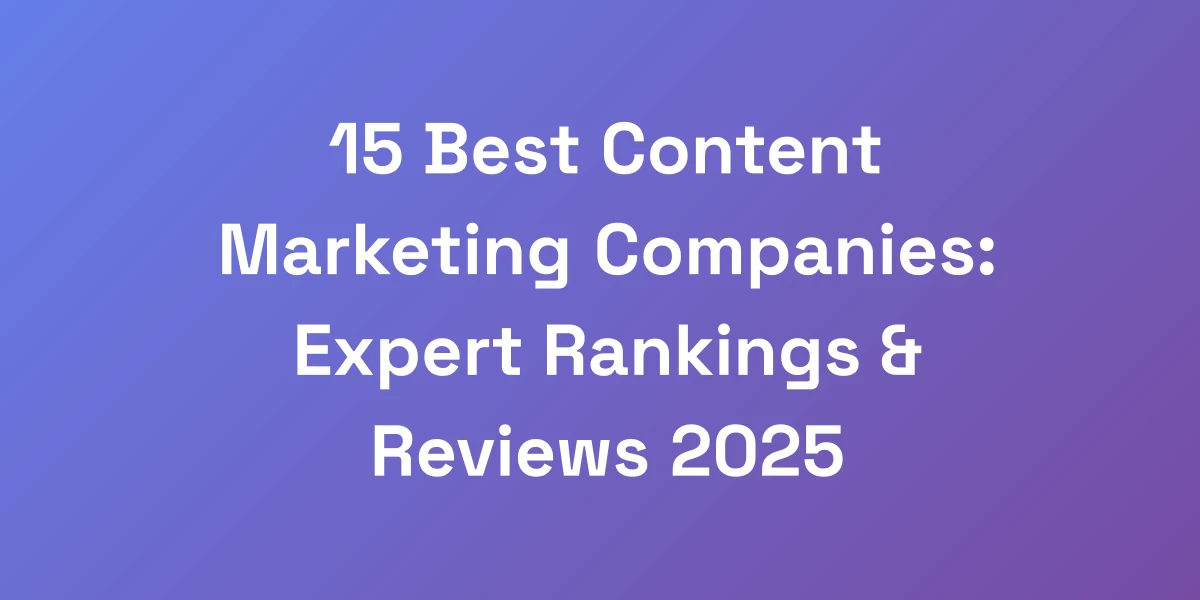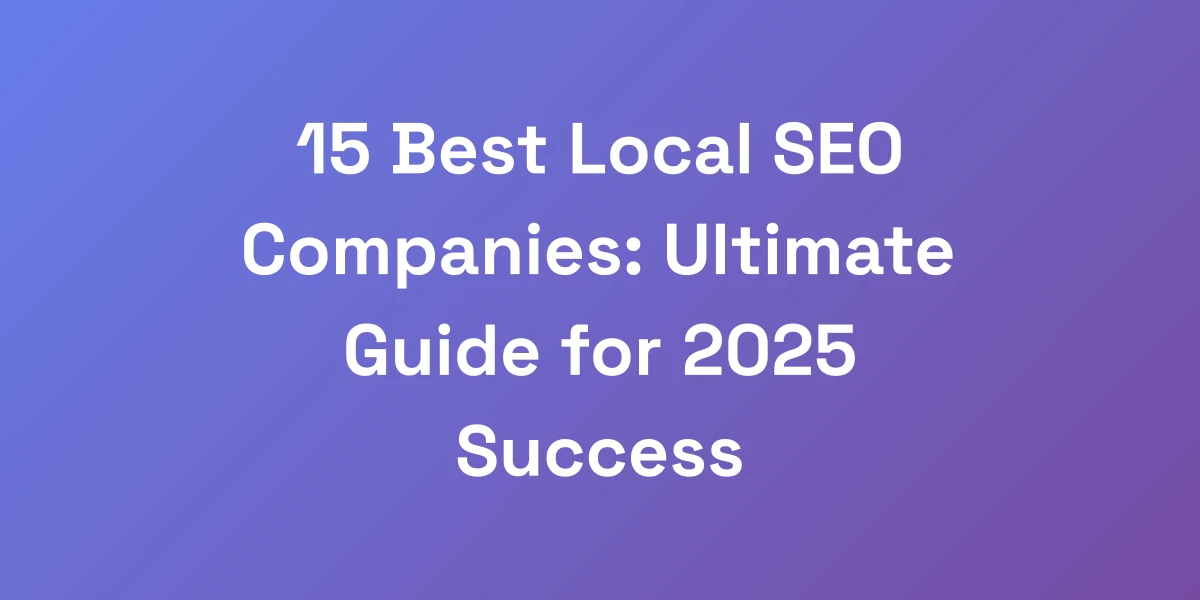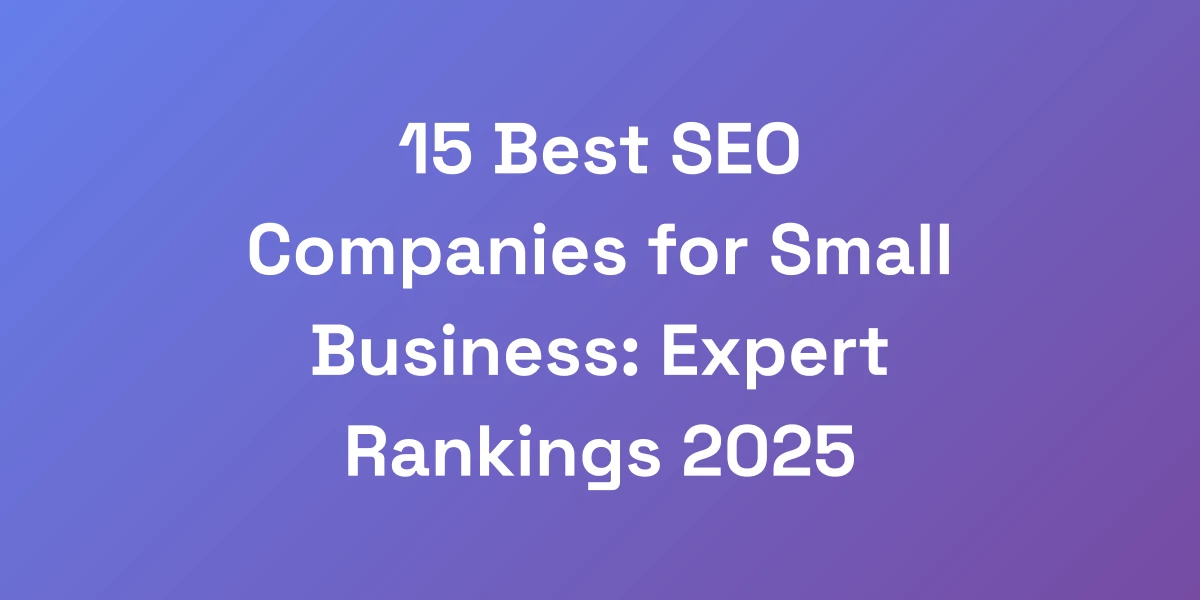
15 Best SEO Companies for Small Business: Expert Rankings 2025
Feb 27, 2025 | By [email protected]
Understanding Small Business SEO Services: A Complete Guide
As a small business owner navigating the digital landscape, finding the right SEO partner can feel overwhelming. We’ve all been there, staring at search rankings and wondering why competitors are always one step ahead.
It’s not just about being online; it’s about being visible to the right people at the right time. The challenges? Limited budgets, fierce competition, and the ever-changing algorithms that dictate search success.
But what if you could cut through the noise and genuinely understand how to elevate your online presence without breaking the bank? In this comprehensive guide, we’ll dive deep into everything you need to know about choosing the perfect SEO company for your small business.
From pricing expectations to red flags you should watch out for, let’s transform your online presence together.
What Makes Small Business SEO Different?
Small business SEO isn’t just a smaller version of large-scale SEO; it has its unique nuances. Unlike big corporations that can invest heavily, small businesses often operate with tighter budgets and limited resources.
So, how do you make a significant impact without spending a fortune? It’s all about smart, targeted strategies that focus on your specific audience and local market.
- Local Focus: Prioritizing local search optimization to attract nearby customers.
- Personalized Strategies: Tailoring SEO tactics to fit the unique needs of your business, such as SEO for financial services.
- Cost-Effective Solutions: Implementing strategies that provide maximum ROI without draining your budget.
Understanding these differences allows you to set realistic goals and choose an SEO partner who can deliver results tailored to your unique circumstances.
Key Services Every Small Business Needs
When selecting an SEO company, it’s crucial to know what services are essential for your business growth. Here are the key services that every small business should consider:
- Keyword Research: Identifying the terms your potential customers are searching for.
- On-Page SEO: Optimizing individual web pages to rank higher and earn more relevant traffic.
- Local SEO: Enhancing your visibility in local search results, crucial for attracting nearby customers.
- Content Creation: Developing high-quality content that engages your audience and improves SEO.
- Link Building: Acquiring high-quality backlinks to boost your site’s authority.
- Technical SEO: Ensuring your website is technically sound for optimal crawling and indexing by search engines.
These services form the backbone of any successful SEO strategy, ensuring that your business not only attracts visitors but also converts them into loyal customers.
Average Cost Expectations
Budgeting for SEO can be a bit tricky, especially with the wide range of average costs available. Let’s break down the average costs you can expect in 2025:
- Monthly Retainers: Typically range from $1,500 to $3,500 per month, depending on the scope and complexity of services.
- Project-Based: One-time projects can cost between $2,500 and $7,500, ideal for specific campaigns or website overhauls.
- Hourly Consulting: Rates usually fall between $100 and $300 per hour, suitable for businesses needing expert advice without a long-term commitment.
Understanding these cost structures helps you plan your investment wisely, ensuring you get the most value without overspending.
ROI Metrics to Track
Investing in SEO is all about the return you get. But how do you measure it? Here are the key metrics to keep an eye on:
- Organic Traffic: The number of visitors coming to your site through search engines.
- Keyword Rankings: Tracking how your targeted keywords are performing over time.
- Conversion Rates: The percentage of visitors who take a desired action, such as making a purchase or filling out a contact form.
- Backlink Quality: The authority and relevance of the sites linking back to your website.
- Bounce Rate: The percentage of visitors who leave your site after viewing only one page.
By monitoring these metrics, you can gauge the effectiveness of your SEO efforts and make informed decisions to optimize your strategy further.
Common SEO Scams to Avoid
Unfortunately, the SEO industry is not immune to scams. As you search for the best SEO companies for your small business, here are some red flags to watch out for:
- Guaranteed Rankings: No one can guarantee top rankings due to the ever-changing nature of algorithms.
- Black Hat Techniques: Tactics like keyword stuffing, cloaking, or using private link networks can lead to severe penalties.
- Opaque Reporting: If a company isn’t transparent about their methods or results, it’s a major red flag.
- Poor Communication: Lack of regular updates and unresponsiveness can indicate unreliability.
- Too Good to Be True Pricing: Extremely low prices often mean subpar service or hidden costs.
Being aware of these scams ensures you choose a reputable SEO partner that prioritizes ethical practices and delivers genuine results.
Top-Rated SEO Companies for Small Business Growth
After analyzing hundreds of SEO agencies and their track records with small businesses, we’ve identified the absolute cream of the crop. These companies consistently deliver outstanding results while maintaining transparent pricing and excellent communication.
What sets these providers apart is their deep understanding of local search optimization and their ability to create customized strategies that work within small business budgets.
Here’s our carefully curated list of the best SEO companies that actually deliver on their promises.
WebFX: Best Overall Value
WebFX stands out as a top choice for small businesses seeking comprehensive SEO services. Their transparent pricing and robust service offerings make them a reliable partner.
- Services: Full-suite SEO, including on-page, off-page, technical SEO, and content marketing.
- Pricing: SEO costs range from $1,500 to $7,500 per month, accommodating various budgets.
- Strengths: Proven track record with extensive case studies showcasing significant traffic and ranking improvements.
Clients appreciate WebFX’s dedication to personalized strategies and their ability to communicate complex SEO concepts in an understandable manner.
OuterBox: E-commerce Specialists
If you’re running an e-commerce store, OuterBox is tailored to meet your specific SEO needs. Their expertise in optimizing online stores ensures your products reach the right audience.
- Services: E-commerce SEO, product feed optimization, and conversion rate optimization.
- Pricing: Packages start at $2,000 per month, with customizable options based on business size.
- Strengths: Deep understanding of e-commerce platforms like Shopify and Magento, with a focus on driving sales through SEO.
OuterBox’s specialized approach helps e-commerce businesses enhance their visibility and increase online sales effectively.
SocialSEO: Local Search Champions
SocialSEO excels in local search optimization, making them an excellent choice for businesses targeting local customers. Their strategies are designed to boost your local presence and drive foot traffic.
- Services: Local SEO, social media marketing, and reputation management.
- Pricing: SEO services start at $1,200 per month, with flexible plans to fit different budgets.
- Strengths: Strong focus on Google My Business optimization and local citation building, resulting in improved local search rankings.
Businesses that partner with SocialSEO benefit from their expertise in enhancing local visibility and attracting nearby customers effectively.
NinjaPromo: Innovation Leaders
NinjaPromo brings innovative SEO strategies to the table, ensuring your business stays ahead of the competition. Their forward-thinking approach integrates the latest SEO trends and technologies.
- Services: Advanced SEO techniques, influencer marketing, and content innovation.
- Pricing: Tailored packages starting at $2,500 per month, reflecting their premium services.
- Strengths: Emphasis on cutting-edge strategies and continuous innovation to adapt to changing SEO landscapes.
NinjaPromo’s commitment to innovation ensures your SEO strategy remains effective and up-to-date with the latest industry standards.
Ignite Visibility: Content Marketing Masters
Ignite Visibility is renowned for its expertise in content marketing, a critical component of any successful SEO strategy. Their focus on creating high-quality, engaging content helps businesses attract and retain their target audience.
- Services: Content creation, content marketing, and comprehensive SEO services.
- Pricing: SEO services start at $1,500 per month, with scalable options based on your needs.
- Strengths: Exceptional ability to produce content that not only ranks well but also resonates with readers, driving engagement and conversions.
Clients value Ignite Visibility’s strategic approach to content marketing, which seamlessly integrates with overall SEO efforts to enhance online presence and drive business growth.
Detailed Comparison Matrix
To help you make an informed decision, here’s a detailed comparison of the top SEO companies for small businesses:
| Company | Specialty | Starting Price | Key Strengths |
|---|---|---|---|
| WebFX | Comprehensive SEO | $1,500/month | Proven results, extensive case studies |
| OuterBox | E-commerce SEO | $2,000/month | E-commerce platform expertise |
| SocialSEO | Local SEO | $1,200/month | Google My Business optimization |
| NinjaPromo | Innovative SEO | $2,500/month | Advanced techniques, continuous innovation |
| Ignite Visibility | Content Marketing | $1,500/month | High-quality content creation |
This matrix highlights each company’s unique strengths and pricing, allowing you to choose the one that best fits your business needs and budget.
How to Choose the Right SEO Partner for Your Business
Selecting an SEO company isn’t just about finding the highest-rated agency – it’s about finding the perfect match for your specific needs. With so many options available, how do you determine which one is the right fit for your business?
Through our experience working with various SEO providers, we’ve developed a foolproof system for evaluating potential partners. Let’s walk through it together, ensuring you make an informed and confident decision.
Essential Questions to Ask
Before committing to an SEO company, it’s crucial to ask the right questions to assess their capabilities and compatibility with your business goals.
- What is your SEO strategy? Understanding their approach helps you gauge if it aligns with your business objectives.
- Can you provide case studies or references? Proven success with other clients indicates reliability and effectiveness.
- How do you measure success? Clear metrics and KPIs show how they track and report progress.
- What tools do you use? The right tools can enhance the efficiency and accuracy of SEO efforts.
- Who will be working on my account? Knowing the team structure ensures you have the right expertise handling your SEO.
These questions help you uncover the company’s methods, past performance, and how they’ll manage your SEO needs specifically.
Red Flags to Watch For
While evaluating SEO companies, certain warning signs should make you proceed with caution or even walk away.
- Lack of Transparency: If they’re vague about their strategies or pricing, it’s a major red flag.
- No Proven Results: Agencies that can’t provide case studies or show tangible outcomes may not deliver as promised.
- Black Hat Techniques: Avoid companies that suggest unethical practices, as these can lead to penalties.
- One-Size-Fits-All Approach: Effective SEO requires customization; generic solutions often fall short.
- Poor Communication: If they’re not responsive or clear in their communication, managing the partnership can become frustrating.
Recognizing these red flags ensures you steer clear of unreliable or ineffective SEO providers.
Contract Terms to Negotiate
When you’ve zeroed in on a potential SEO partner, it’s time to discuss the contract. Here are the key terms you should negotiate:
- Scope of Work: Clearly define what services are included to avoid hidden costs and ensure alignment. Refer to an SEO contract for detailed terms.
- Timeline and Milestones: Set realistic deadlines and key milestones to track progress effectively.
- Payment Terms: Ensure the payment schedule is manageable and reflects the services provided.
- Termination Clause: Protect yourself by having the option to terminate the contract if expectations aren’t met.
- Performance Metrics: Define how success will be measured to maintain accountability.
Negotiating these terms upfront helps establish clear expectations and a solid foundation for the partnership.
Success Metrics to Define
Defining success metrics is crucial for tracking the effectiveness of your SEO strategy. Here are the primary metrics to consider:
- Organic Traffic Growth: Monitor the increase in visitors coming from search engines.
- Keyword Rankings: Track how your targeted keywords perform over time.
- Conversion Rates: Measure the percentage of visitors who take desired actions on your site.
- Backlink Quality: Assess the authority and relevance of external links pointing to your website.
- Engagement Metrics: Analyze bounce rates, session duration, and pages per session to gauge user engagement.
By clearly defining these metrics, you can objectively assess the success of your SEO efforts and make necessary adjustments.
Communication Expectations
Effective communication is the cornerstone of a successful SEO partnership. Here’s how to set clear communication expectations:
- Regular Updates: Schedule consistent check-ins to discuss progress and address any concerns.
- Reporting: Ensure you receive detailed reports that are easy to understand and actionable.
- Point of Contact: Identify a dedicated account manager who will handle your queries and updates.
- Feedback Mechanism: Establish a process for providing feedback to continuously improve the strategy.
Clear communication fosters transparency and ensures both parties are aligned towards common goals.
Budget Allocation Strategy
Allocating your budget effectively can make a significant difference in the outcomes of your SEO efforts. Here’s a smart approach to budget allocation:
- Initial Investment: Allocate a significant portion upfront for website audits, keyword research, and initial optimizations.
- Ongoing Services: Budget for continuous SEO activities like content creation, link building, and technical maintenance.
- Performance-Based Spending: Adjust your budget based on the performance and ROI of different SEO strategies.
- Tools and Resources: Invest in the right tools that can enhance your SEO efforts, such as analytics platforms and content management systems.
Strategic budget allocation ensures you maximize the impact of your SEO investment, driving sustainable growth for your business.
Maximizing Your SEO Investment: Implementation Guide
Getting the most value from your SEO partnership requires more than just signing a contract. We’ve learned that successful small business SEO campaigns depend on active collaboration between your team and the agency.
This section reveals our proven strategies for managing the relationship, tracking progress, and ensuring accountability.
You’ll discover how to optimize your investment and create a partnership that drives real business growth, including strategies such as digital marketing for agencies.
First 90 Days Timeline
The initial phase of your SEO campaign sets the foundation for long-term success. Here’s a timeline for the first 90 days:
- Week 1-2: Onboarding and setup, including access to analytics tools and a comprehensive website audit.
- Week 3-4: Keyword research and competitive analysis to identify opportunities.
- Month 2: Implement on-page SEO changes, optimize existing content, and start creating new, high-quality content.
- Month 3: Begin link-building campaigns, improve site speed, and enhance mobile usability.
Following this timeline ensures a structured approach, allowing both your team and the SEO agency to stay aligned and progress steadily.
Progress Tracking Systems
To ensure your SEO efforts are on track, implementing effective progress tracking systems is crucial. Here are some methods:
- Google Analytics: Monitor traffic sources, user behavior, and conversion rates.
- Google Search Console: Track keyword performance, indexing status, and click-through rates.
- SEO Dashboards: Use tools like SEMrush or Ahrefs to visualize performance metrics in real-time, or explore SEO automation.
- Monthly Reports: Receive detailed reports from your SEO agency summarizing progress and highlighting key achievements.
These systems provide a clear view of your SEO performance, enabling you to make data-driven decisions.
Communication Protocols
Establishing clear communication protocols ensures a smooth and productive partnership. Here’s how to set them up:
- Regular Meetings: Schedule weekly or bi-weekly meetings to discuss progress and upcoming tasks.
- Dedicated Channels: Use specific communication channels for SEO discussions, such as Slack or dedicated email threads.
- Transparency: Encourage open and honest communication about challenges and successes.
- Documentation: Keep records of all communications and decisions made to maintain clarity and accountability.
Well-defined communication protocols foster a collaborative environment, essential for achieving your SEO goals.
Performance Reviews
Regular performance reviews help assess the effectiveness of your SEO strategy and make necessary adjustments.
- Monthly Check-ins: Review key metrics and discuss what’s working and what needs improvement.
- Quarterly Evaluations: Conduct in-depth evaluations of overall performance and strategic adjustments.
- Feedback Sessions: Provide and receive feedback to continuously enhance the SEO strategy.
Performance reviews ensure that your SEO efforts are aligned with your business objectives and are driving the desired results.
Scaling Strategies
As your business grows, so should your SEO strategy. Here are some scaling strategies to consider:
- Expand Keyword Targets: As you capture more keywords, focus on long-tail keywords to drive more targeted traffic.
- Content Expansion: Increase the volume and variety of content to cover more topics relevant to your audience.
- Advanced Link Building: Engage in more sophisticated link-building tactics to further enhance your site’s authority.
- Technical Enhancements: Continuously improve site speed, mobile optimization, and other technical aspects to support growth.
- Implementing SEO for Small Business: Utilize specialized strategies tailored for small enterprises, such as SEO for consultants, to maintain competitiveness.
Scaling your SEO strategy ensures that your online presence continues to expand in line with your business growth.
When to Switch Providers
Sometimes, despite best efforts, things might not work out with your current SEO provider. Here’s when it might be time to make a change:
- Lack of Progress: If there’s no noticeable improvement in your key metrics over several months.
- Poor Communication: If your provider is unresponsive or fails to keep you informed about progress.
- Unethical Practices: If they’re using black hat techniques that could harm your site’s reputation.
- Misaligned Goals: If their strategies don’t align with your business objectives and needs.
Recognizing these signs early allows you to make a timely switch, ensuring your SEO efforts remain effective and aligned with your goals.
Conclusion
Choosing the best SEO company for your small business is a critical decision that can significantly impact your online presence and overall growth. By understanding what sets small business SEO apart, recognizing essential services, and knowing how to evaluate potential partners, you can make a well-informed choice that drives success.
Remember, the right SEO partner will not only enhance your rankings but also provide actionable insights and support to propel your business forward.
If you’re ready to transform your SEO strategy and achieve remarkable growth, take the next step. Reach out to one of our top-rated SEO companies today and start your journey towards a stronger online presence.
What’s your biggest SEO challenge right now? Let’s discuss in the comments below!
